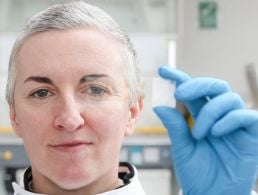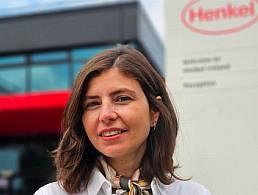A new series of videos features individuals who have returned to work after a serious illness.
Ahead of last week’s World Stroke Day (29 October), HR consulting company Randstad released a new series of videos featuring individuals who have dealt with a serious illness and have returned to working life.
The series aims to raise awarenesses of the challenges that can be faced during such a period, with advice for both employees and employers.
Returning to work after a stroke
This is the second series published by the company in the UK, and one of the main voices this time is Terry, a plumber and heating engineer who had a major stroke on the job. As a result, Terry had a seven-week hospital stay followed by a two-year break from work.
In the video, he discussed the challenges of such an experience that perhaps aren’t so well known, including social anxiety.
“I had never realised how important the routine of work is as part of having a healthy mindset until I was forced to stop working due to a major stroke. The time I spent away from work gave me plenty of time to think and focus on getting better. I was so determined to get back to my job, to get back to normal.
“Being fortunate enough to make a near full recovery, I feel it’s important to highlight that the day-to-day stresses of adult life can get to you, and it’s crucial to take some downtime to recover.”
Terry’s story is important given that there are more than 100,000 strokes in the UK each year, according to the UK Stroke Association. “The key thing to remember is that your life does not end there. If you’re determined, like I was, you will be back to normal before you know it,” Terry added.
‘Educate and inform’
Graham Trevor, HR and corporate services director at Randstad UK, said: “Shocking statistics from the Stroke Association revealed that people who have a stroke at working age are two to three times more likely to be unemployed eight years after their stroke.
“Terry’s inspirational story really hits home and will resonate with others who have had to take unexpected time away from the workplace due to a serious illness, such as a stroke.
“Through our returning to work campaign we hope to educate and inform those that have suffered from serious illness, by sharing valuable information and insight from the inspirational individuals who are featured in the films.”
Returning to work after cancer
Statistics from Cancer Research UK suggest that 990 people are diagnosed with cancer every day in the UK. Through the series, Randstand acknowledged the large number of people living in the UK who may be seeking out advice on returning to work after living with an illness such as cancer.
Another video featured Charmaigne, who works in property and facilities and has lived with Hodgkin’s lymphoma.
Charmaigne highlighted the difficulties of returning to work when receiving medical treatment for her recovery, and gave tips for employers on how to make someone’s return to work less challenging following an illness.
“Going back to work was one of my big priorities because to me that meant getting back to normal,” she said. “I’ve been so lucky to have the support I’ve had from my work colleagues … People don’t realise how much that keeps you going.”
Lasting advice
Trevor’s advice for anyone in a similar situation to the individuals in the videos was: “It’s very important to take your time when considering your return to the workplace and, for most, like Terry, the natural feeling of urgency to get back to work and normality is front of mind.
“Speak to your employer about a phased return – you don’t want to be overwhelmed by jumping straight back into your former role, as this can result in further setbacks, both mentally and physically.
“Your decision to return to work after illness should be primarily guided by the advice of medical professionals and how you are feeling – don’t put too much pressure on yourself.”




